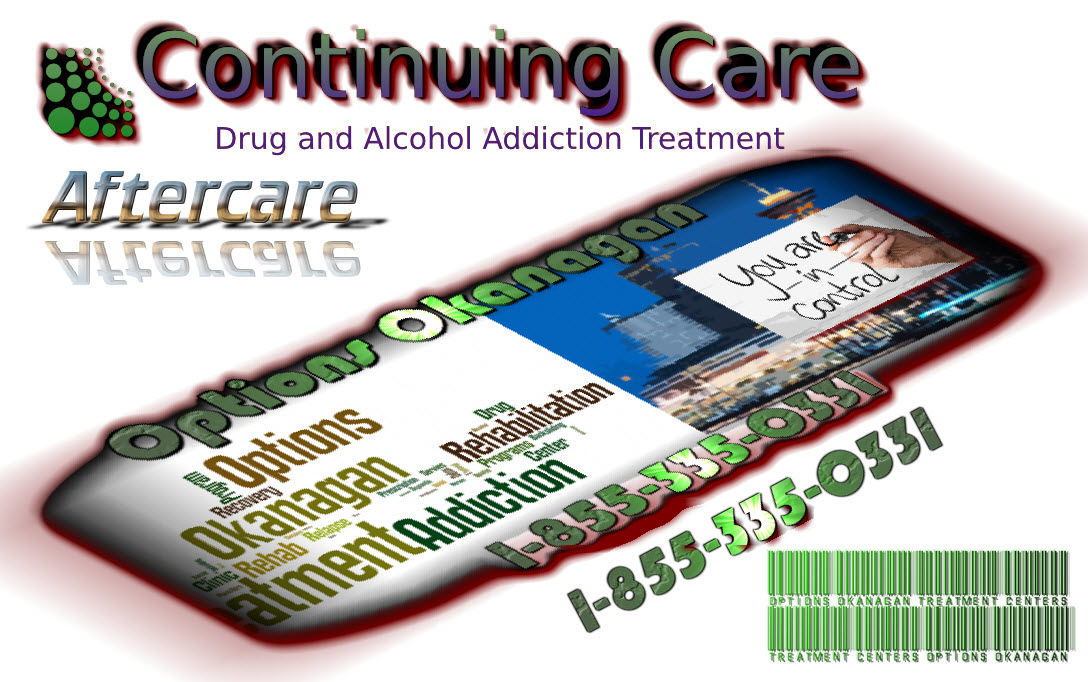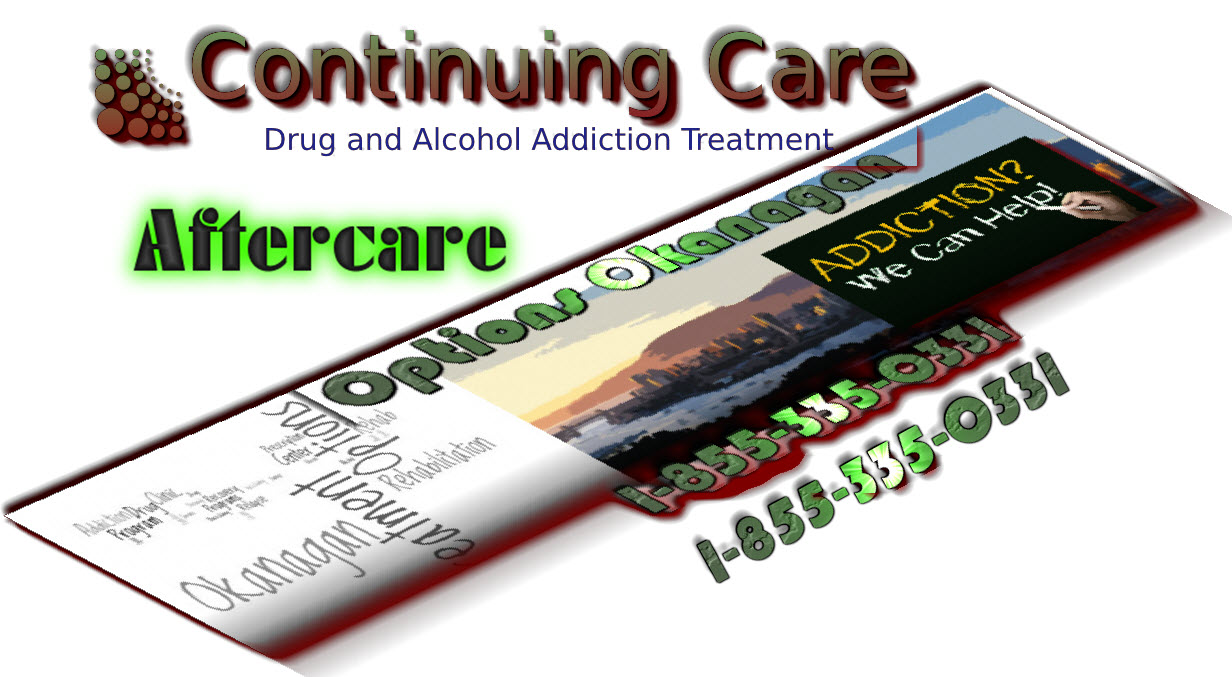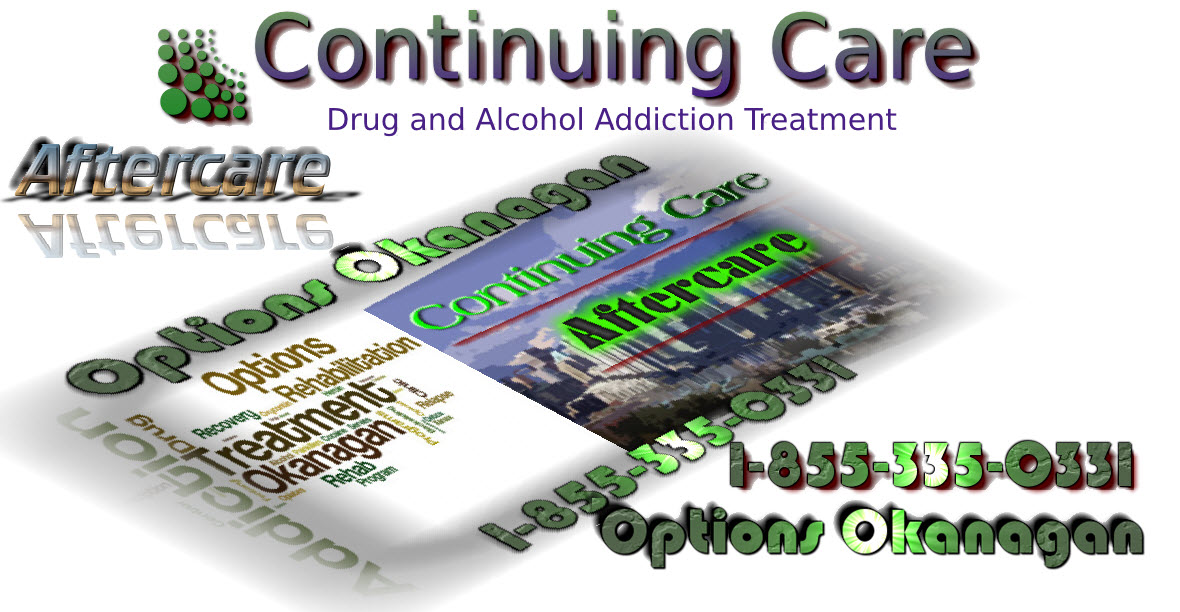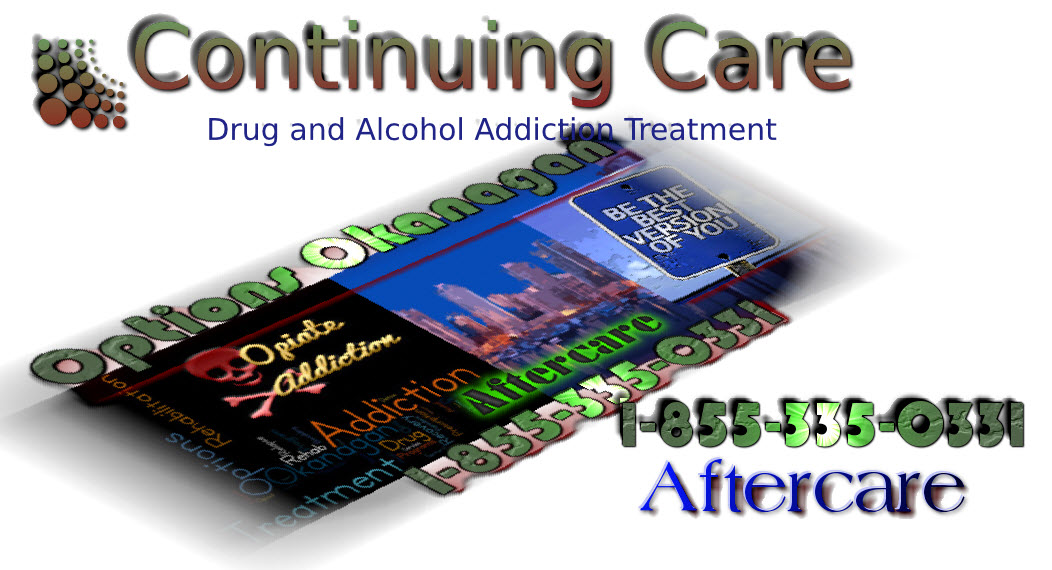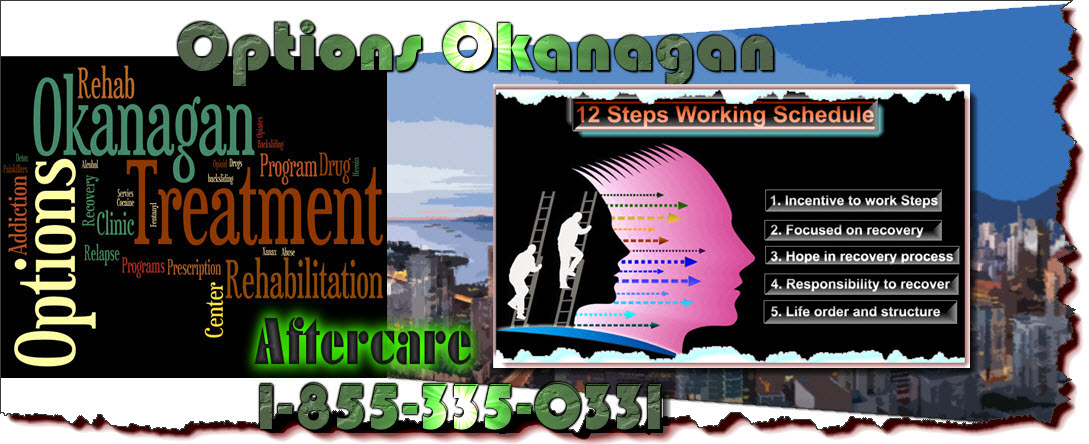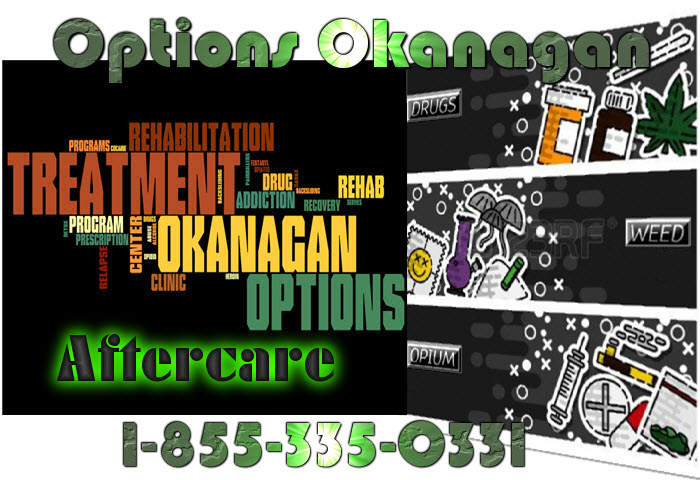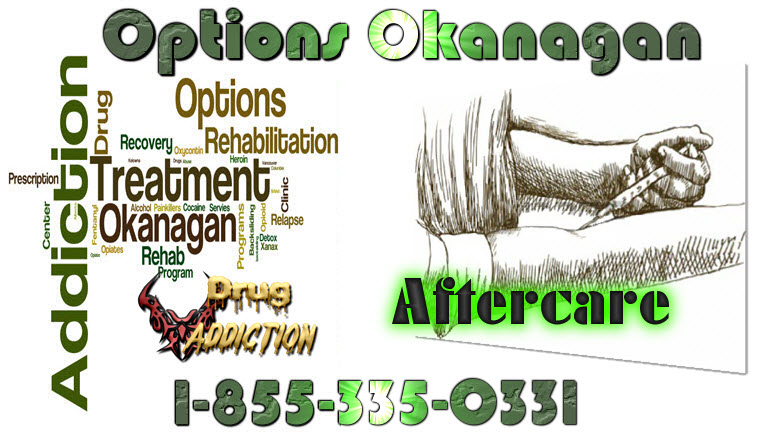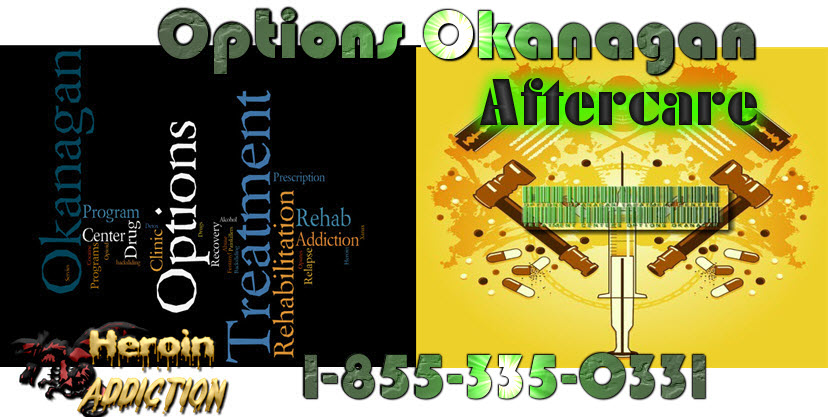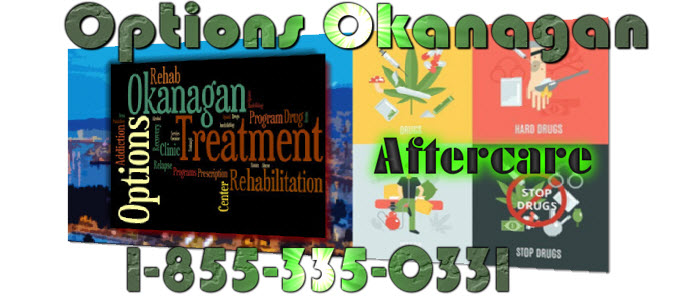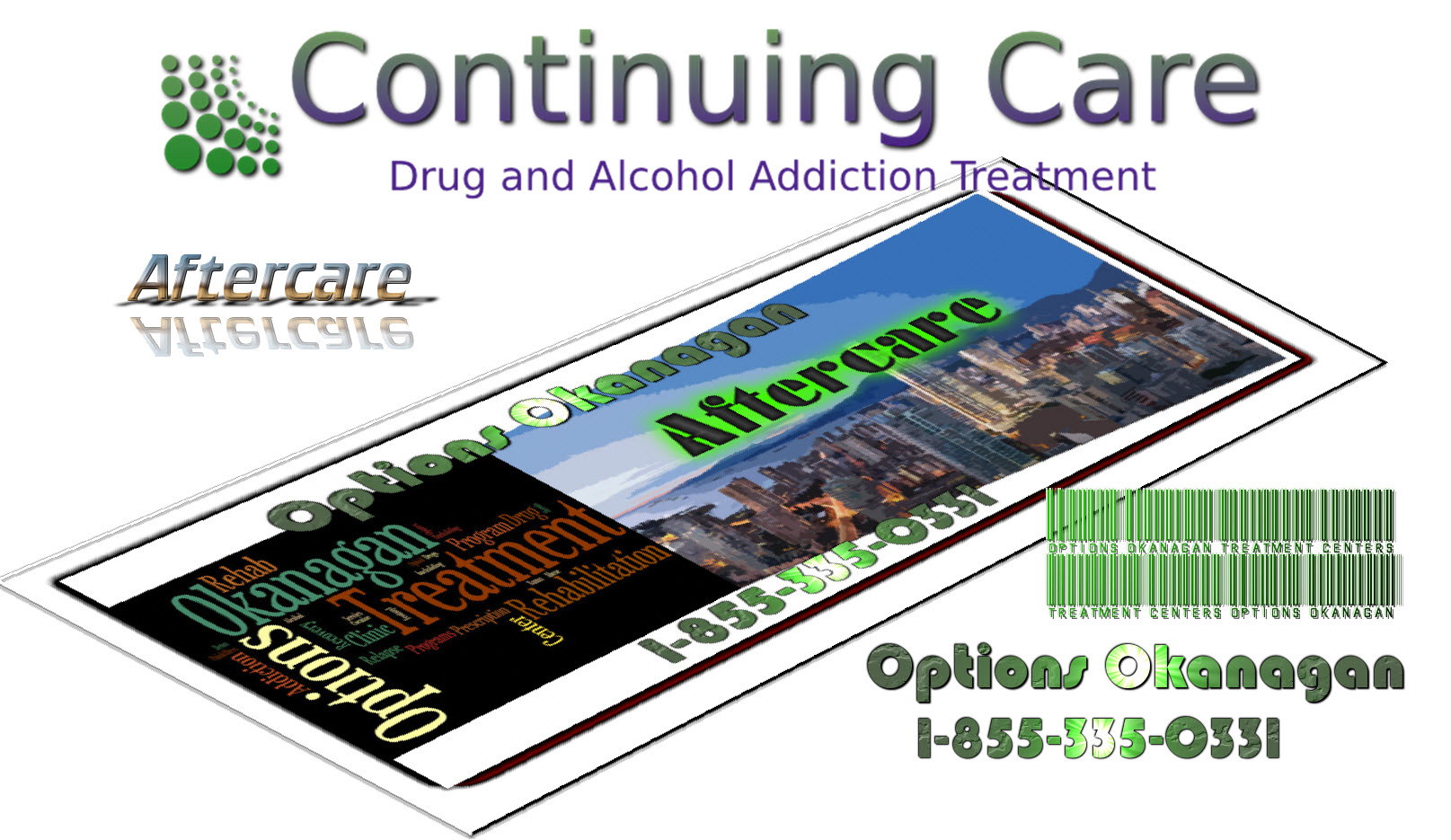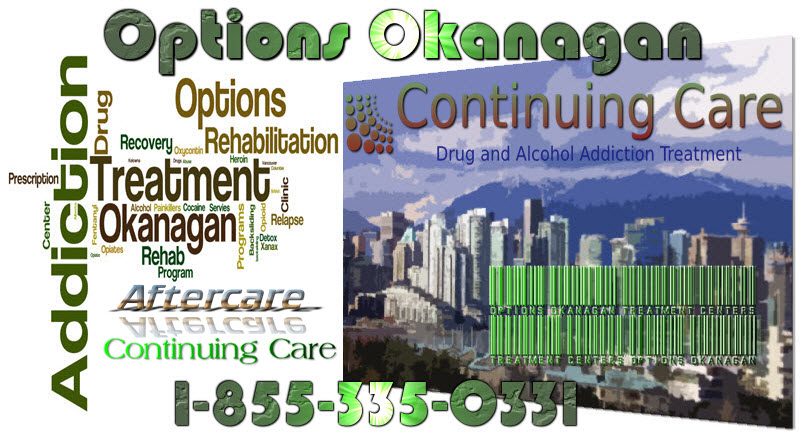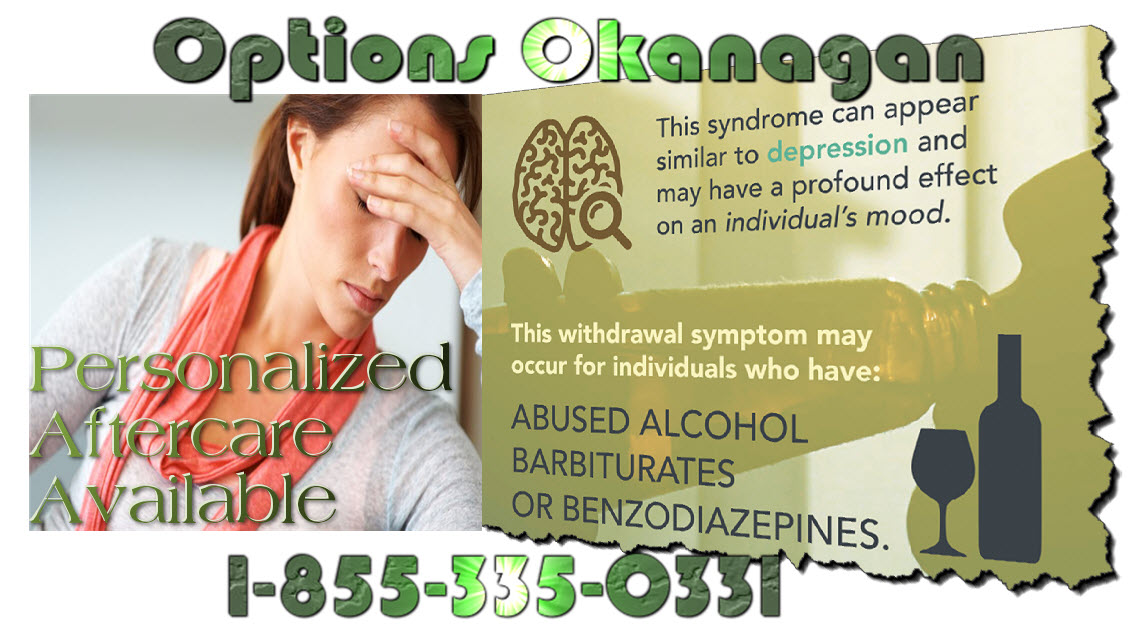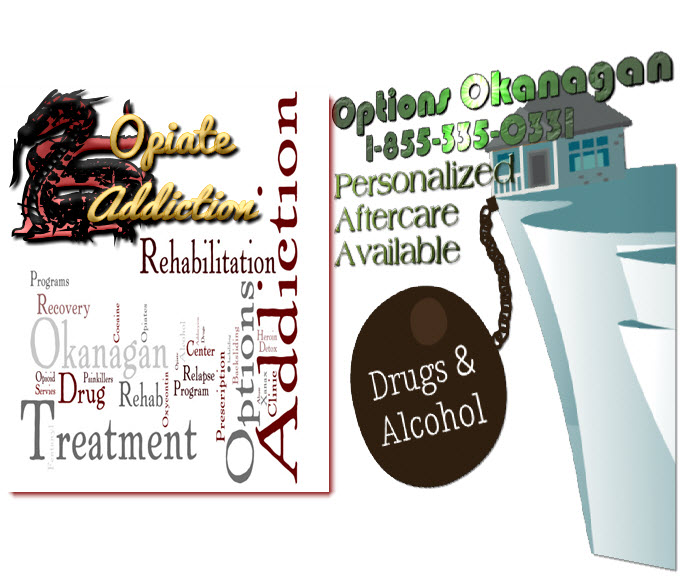Continuing care and aftercare for the treatment of drug and alcohol addictions in Vancouver, Victoria and Kelowna, British Columbia – Options Okanagan Treatment Centers in Kelowna, British Columbia treating opiate and alcohol addiction and recovery.
Anyone who is able to be honest with themselves while involved in recovery treatment will know that this is something that will turn into a lifelong process. This is something where there is no actual cure, so moving on with life and remaining on a good path will mean staying on it for the rest of your days. If you are not able to adopt this mentality, you will see that there is no level of drug or alcohol addiction treatment that will maintain your sobriety, nor will you be able to create the kind of recovery that will point you in the direction of motivating experiences and healthy decisions for the remainder of your life. Recovery is something that does not start with residential treatment, bit it will keep on going with comprehensive planning or a package that includes continued care as you move onward from your safe and structured environment and into the real world once again.
After completing a residential addiction treatment program, it can be daunting to transition back into a regular lifestyle. Added support will be necessary to encourage and to also offer a sense of solidarity with others who are facing the same circumstances. If this option is not available, an addict could be tempted to relapse, especially when they take into consideration just how serious the addiction is and they reflect on the substance that was abused, as well as where they could potentially go back to get it.
A number of recovering addicts will find that working with continuing care group therapy will be valuable as a lifeline when they want to keep up with the program and a sober lifestyle. Without the guidance and care of such a provider and the support of the peers in group therapy, the higher risk scenarios could end up doing you in and driving you back into addiction. Support will help you to cope with whatever the new life is going to throw your way. Access to a community that is like minded will help you to work on the fundamentals that are crucial to living a successful sober lifestyle. This will include appropriate rest, adequate nutrition, physical exercise and emotional support.
Whenever you want to give your sobriety and treatment the best possible chance at working, full participation will be necessary with continuing care and group therapy. Spending the time you need with those who are also in recovery, or even a bit further along, will give you the ideas and the inspiration that you need to recognize triggers, resist them and prevent a potential relapse so that recovery can be long-term.
The right continuing care program will be able to help with restoring wellness for many facets of overall wellbeing in your life. You will have the ability to deal with stress, let go of any resentment you may have and help with healing or even stay away from the dysfunctional relationships that you may have developed while you were addicted. Continuing care plays a major role in your success and it can mean the difference between a life of health and happiness or falling back into a downward spiral.
Options Okanagan Opiate and Alcohol Treatment Centers in Kelowna, Salmon Arm and Vancouver, British Columbia – Men and Women are recovering and healing from Alcohol and Drug Abuse at our treatment center here in the Okanagan right now.
Our unique and distinctive Opiate Drug and Alcohol treatment program allows men and women to come in from Calgary as well as Edmonton as we offer airport pickup.
Numerous clients come to us from Vancouver, Calgary and Edmonton and other locations in Alberta and even other provinces for Opiate addiction treatment, heroin drug treatment, many other drug and alcohol addictions for rehabilitation because of the uniqueness of our treatment center.
Our Treatment Location:
Options Okanagan Opiate Treatment Center
551 Sherrydale Crescent, Kelowna, British Columbia, V1V 2E6
Toll Free Phone Number : 1-855-335-0331


